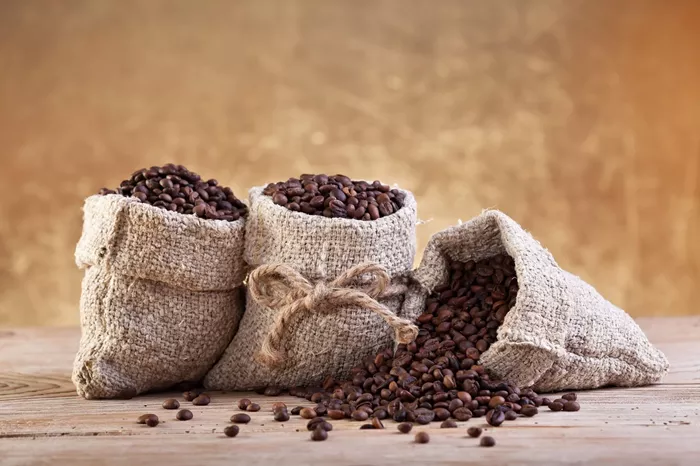Espresso, with its rich and concentrated flavor, is the cornerstone of many coffee drinks. Achieving the perfect shot requires precision in every step, starting with the amount of coffee beans to grind. Whether you’re a seasoned barista or a home enthusiast, understanding the standard measurements and brewing techniques will help elevate your espresso game.
Standard Measurement for Espresso
The foundation of great espresso lies in using the right amount of coffee. The precise amount of beans can dramatically influence the flavor and consistency of your shots. Here are the standard measurements to keep in mind:
Single Shot
For a single espresso shot, use approximately 7-9 grams of coffee beans.
Double Shot
A double shot requires about 14-18 grams of coffee beans.
These measurements provide the base for proper extraction. However, slight adjustments can be made based on your taste preferences or the type of beans used.
Importance of Accurate Measurement
Consistency is key when brewing espresso. Even small variations in the amount of coffee can lead to significant changes in flavor. For a consistent cup every time, it’s essential to measure your coffee precisely. Here’s why:
Consistency in Flavor
Accurate measurement ensures a consistent extraction, which is critical for the balance of bitterness, sweetness, and acidity in espresso.
Quality Control
Maintaining the same measurements will help ensure that your espresso tastes the same every time, avoiding over-extraction or under-extraction.
To achieve this level of precision, a digital kitchen scale is highly recommended. It allows you to measure the exact amount of coffee needed, preventing the guesswork and ensuring consistency shot after shot.
Grind Size for Espresso
The grind size is just as important as the amount of coffee. For espresso, the grind must be fine, almost powdery, to allow proper extraction under the high pressure used in brewing. The grind size controls the flow rate of water through the coffee and directly affects the extraction.
Fine Grind
The grind should be fine enough to feel like table salt, not too coarse or powdery. A fine grind ensures the water is forced through the coffee evenly, allowing it to extract the oils and flavors needed for a great espresso.
Investing in a high-quality burr grinder is essential. Unlike blade grinders, burr grinders produce a uniform particle size, which is vital for consistent extraction. The uniformity of the grind ensures the water interacts with the coffee evenly, resulting in a smooth and balanced shot.
Brewing Factors
Several brewing factors influence the quality of your espresso shot, including tamping pressure, water temperature, and extraction time. These elements work in tandem with the amount of coffee used to bring out the best flavors.
Tamping Pressure
After dosing your coffee into the portafilter, tamping it down firmly with an even pressure (about 30 pounds of force) ensures that the grounds are compact and uniform. This prevents channeling, where water finds an uneven path through the grounds, which can lead to inconsistent extraction.
Water Temperature
The ideal water temperature for brewing espresso is between 195-205°F (90-96°C). Water that’s too hot or too cold can affect extraction, either under-extracting or over-extracting the coffee.
Extraction Time
A well-pulled shot of espresso typically takes about 25-30 seconds. During this time, the hot water extracts flavors from the coffee, creating a balanced and rich shot. If the extraction time is too short or too long, it can lead to undesirable flavors.
Adjusting for Taste Preferences
While the standard measurements provide a solid starting point, espresso is all about personalization. Don’t be afraid to experiment:
Adjust the Amount of Coffee
You may prefer a stronger or lighter shot. Try adjusting the amount of coffee slightly — a little more or less can make a noticeable difference in flavor.
Taste Profile
If you find your espresso too bitter or too sour, the amount of coffee, grind size, or extraction time may need adjusting.
Troubleshooting Common Issues
Espresso brewing can sometimes result in problematic shots, but with a few adjustments, you can easily troubleshoot:
Under-Extraction (sour, watery taste)
If your shot tastes under-extracted, try using more coffee or adjusting the grind to be finer. It’s also essential to check your tamping technique to ensure an even extraction.
Over-Extraction (bitter, harsh taste)
If your espresso tastes overly bitter or burnt, the grind may be too fine, or the extraction time may be too long. Reducing the coffee amount or using a coarser grind could help.
Additional Tips for the Best Espresso
For the ultimate espresso experience, consider these additional tips:
Freshness
Always use freshly roasted and ground coffee beans. The fresher the coffee, the better the flavor. Pre-ground coffee quickly loses its aroma and flavor, so grinding your beans just before brewing is ideal.
Storage
To maintain freshness, store your coffee beans in an airtight container away from light, heat, and moisture. A cool, dark place is best to preserve the beans’ natural oils and flavors.
Conclusion
Making espresso requires precision and attention to detail. By using the right amount of coffee, paying attention to grind size, and managing key brewing factors like tamping pressure and water temperature, you can consistently brew high-quality espresso. Experiment with different coffee doses to find your perfect shot and remember that a digital scale, a burr grinder, and fresh beans are essential tools for success. With practice and patience, you’ll be able to pull espresso shots that rival your favorite café.
Related topics:
- How Much Is a Gallon of Coffee at Dutch Bros?
- How Much Caffeine Is in a Tablespoon of Instant Coffee?
- How Much Fiber Is in Coffee?

